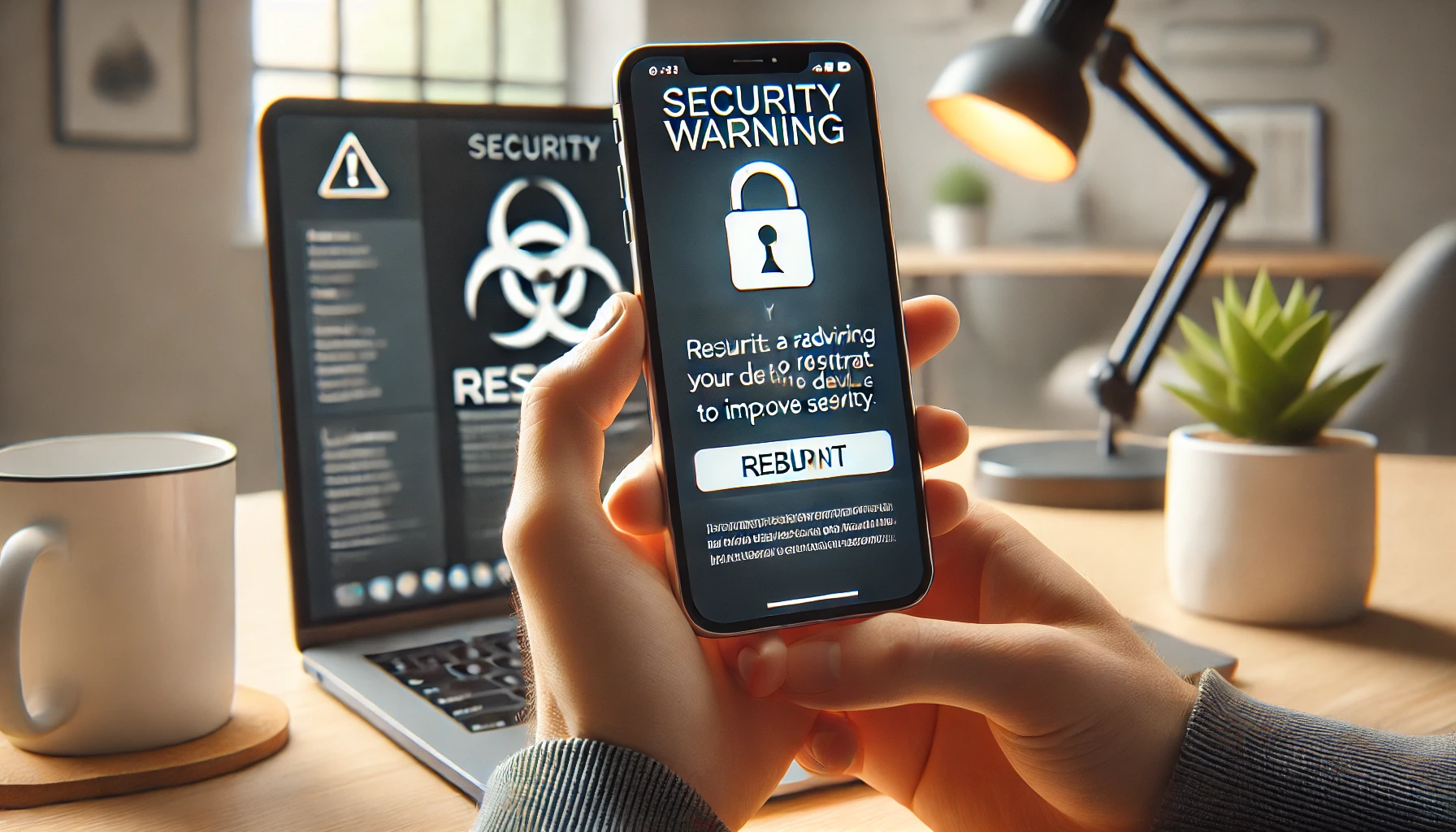
We all rely so much on our phones these days. From emails to online shopping, our phones are the hub of modern life. But with that convenience comes risk. The NSA just released an advisory to all smartphone users—iPhone or Android—to reboot their phones. Sounds simple but it’s a big deal for your data. This post will tell you why and how.
Why?
The NSA says to reboot your phone at least once a week to protect against cyber threats, especially zero-click exploits. These are super sneaky attacks that can infect your phone without you doing anything. When a phone is compromised the malware can sit idle waiting to do bad things like steal your passwords or banking info.
Rebooting your phone stops that process by clearing the device’s memory, removing temporary files and killing malware that may have taken hold. It’s like hitting the reset button—any malicious processes that started while your phone was running will be killed.
This won’t protect you 100% but it will reduce the chances of malware going undetected.
Zero-Click Attacks on the Rise
In the last few years the threat landscape has grown. One of the biggest threats are zero-click attacks. Unlike traditional hacking where you need to click on a malicious link, zero-click attacks exploit vulnerabilities in apps or operating systems without you even knowing. That makes them super scary as they can steal info or take control of your device.
We’ve seen many big cases like Pegasus spyware which was used to spy on journalists, activists and even government officials. They don’t need to send you a suspicious link or attachment. They can exploit vulnerabilities in services like messaging apps that are running in the background.
What Does a Reboot Do?
Most malware including zero-click malware requires persistence to work. When you reboot your phone all the temporary files and active processes in memory are wiped out and most malicious actions stop. It won’t remove malware that’s deep in the operating system but it will stop threats that are surface level.
But a reboot is just one part of a bigger security strategy which includes keeping your software up to date and being smart online.
Other Mobile Security Best Practices
In addition to rebooting your device weekly the NSA recommends the following:
- Update Your Software: Make sure your phone’s operating system and installed apps are up to date. Software updates often contain security patches that fix vulnerabilities hackers can exploit.
- Enable Multi-Factor Authentication (MFA): MFA adds an extra layer of security beyond just a password. It usually requires another form of identification like a text message code or fingerprint scan.
- Use Strong Passwords: Don’t use common or easy to guess passwords. Use a mix of letters, numbers and special characters. You can also use a password manager to help you keep track of complex passwords.
- Be Careful with Public Wi-Fi: Public Wi-Fi is notorious for being insecure. When using public Wi-Fi avoid accessing sensitive information or conducting financial transactions. If you must use public Wi-Fi consider using a Virtual Private Network (VPN) to encrypt your connection.
- Only Download Apps from Trusted Sources: Download apps from official stores like the Apple App Store or Google Play. Avoid third party stores that may have malicious apps that steal your information.
- Review App Permissions: Regularly check what permissions you’ve given to apps on your phone. Some apps request access to data that’s not necessary for their functioning so it’s a good idea to remove permissions that seem excessive.
- Backup Your Data: Backup important data on your phone. This way if your device is compromised you won’t lose important information.
What Else Can You Do?
Besides the NSA’s reboot recommendation and best practices, you should also stay up to date on the latest threats and how to avoid them. Cybercriminals are always evolving and you need to stay one step ahead of them to protect your digital life.
Here are a few more:
- Turn Off Bluetooth and Wi-Fi When Not in Use: Many attacks can exploit open Bluetooth and Wi-Fi connections. When you’re not using these services, turn them off to reduce your risk.
- Auto Update: Set your phone to auto update so you’ll always have the latest security patches which can help protect you from new vulnerabilities.
- Consider Mobile Security Software: There are apps that can monitor your device for malicious activity just like antivirus software on your computer.
- Be Aware of Phishing: Cybercriminals use phishing emails or text messages to trick users into revealing personal info. If something looks suspicious, don’t click on any links or download attachments.
The Risks: Real World Consequences of Mobile Threats
With our phones being such a big part of our daily lives, the stakes of mobile security are huge. If your phone is compromised you could lose more than just your device. Cybercriminals can steal personal info including bank details, passwords and even corporate data.
A mobile security breach can lead to identity theft, unauthorized transactions or even blackmail if private info is stolen. With more and more people using their phones for business, personal and corporate data is at risk.
In extreme cases like Pegasus spyware, even entire governments and high profile individuals have been targeted. So these threats are serious and widespread.
Conclusion
In an era of increasingly complex cyber threats, rebooting your phone is a big deal. It may seem like a small step but restarting your device can disrupt malicious processes and add an extra layer of security. Combine that with other smart practices like updating software, using strong passwords and being careful with public Wi-Fi and you’ll be less likely to be the next cyber attack victim.
So be proactive and follow the NSA’s guidance and you’ll reduce the risk of your phone being compromised and your personal and corporate data will be safe. Next time you think of skipping that reboot, remember: it’s not just refreshing your device, it’s protecting your digital life.







